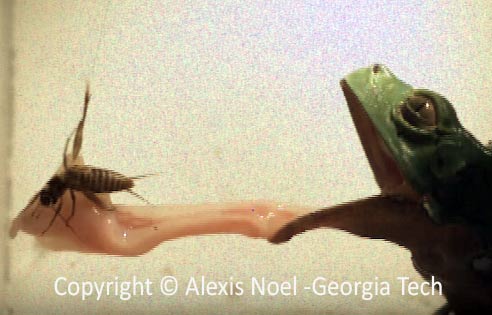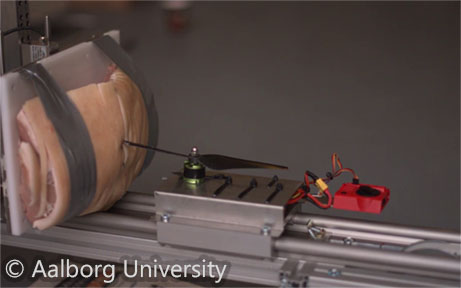A new study released by Georgia Tech led by Alexis Noel, Mechanical Engineering Ph.D. student at that institution has revealed the hidden nature and mechanics of how frogs use their squishy and sticky tongues to eat their prey. With acceleration forces reaching 12 Gs these prey experiment over 4x that of astronauts in a rocket leaving the atmosphere at 3 Gs.
With the use of high speed video cameras at over 1,000fps the study was able to reveal the complex motion, eye retraction and viscous properties of the frog’s elastic tongue while catching prey. The frog uses a mucus like substance on the tongue to generate the stickiness necessary to envelop the insect prey without ejecting them off from the brutal speed and force generated.



